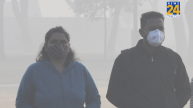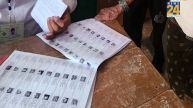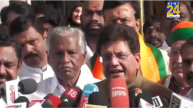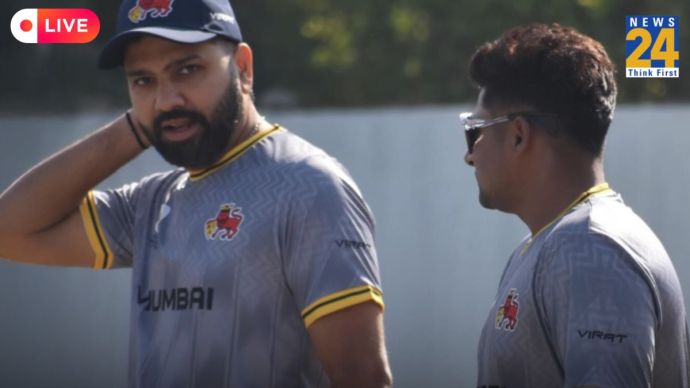Prabhakar Mishra, New Delhi: Karnataka government has said that the hijab controversy was propagated as a pre-planned conspiracy. The claim was made during a hearing in the ban on hijab in educational institutions.
‘PFI started a movement to wear hijab to schools’
Solicitor General Tushar Mehta, appearing for the Karnataka government, argued that no girl was wearing hijab in Karnataka schools till 2021. But in 2022, Popular Front of India started a movement on social media regarding Hijab. Following this, the girls started coming to schools wearing hijab, after which the controversy escalated. During admission in the schools, the petitioners had also given an undertaking to wear school uniforms. None of them talked about wearing the hijab.
Also Read: ‘Rape videos of women, young girls being sold on Twitter for Rs 20’: Swati Maliwal
Stop on wearing hijab is violation of fundamental rights
A bench of two judges Justice Hemant Gupta and Justice Sudhanshu Dhulia is hearing the petitions challenging the hijab ban in the Supreme Court. Prominent lawyers like Rajeev Dhawan, Kapil Sibal, Prashant Bhushan, Colin Gonsalves, Huzaifa Ahmadi, and Islamic Law and Quranic lawyers like Abdul Majeed Dar and Nizam Pasha are trying to prove that girls going to school should wear hijab as their have the right. Stopping them from wearing hijab is a violation of their fundamental right.
‘Turban, tilak, cross not banned, then why hijab?’
When turban, tilak and cross were not banned in schools then why hijab is banned? This has been done to target only one religion. If you want to stop, you can stop by wearing a mini skirt and not a hijab. Hijab covers the head. Hijab does not hurt any of these sentiments as far as the smooth functioning of educational institutions, their dignity and ethics are concerned.
Here’s how the controversy started
The hijab controversy started at a government pre-university college in Udupi, Karnataka when Muslim girl students were barred from attending class wearing hijab. Muslim girls approached the High Court, pleading for the fundamental rights guaranteed by the Constitution. He argued that not allowing them to wear the hijab was a violation of their fundamental rights under Articles 14 and 25 of the Constitution.
Also Read: Deserted look at Kerala HC, lawyers on protest
Matter was not confined to just court, politics seeped in
The matter went to court but was not confined to the court. Because there was an angle of religion in it, politics started. The High Court ruled that wearing the hijab is not a required religious practice in Islam and rejected the submissions of Muslim girl students for being allowed to wear the hijab in classes.
After the decision of the High Court, a circular was issued by the state government that wearing clothes like scarves, hijab, saffron shawls will not be allowed in educational institutions. Muslim girls have challenged the decision of the High Court and the government in the Supreme Court.













